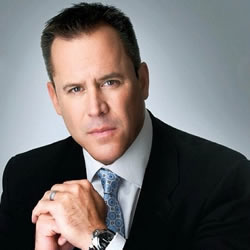Predictions Part 2
This month, I’m back with the second installment of Stranger Than Fiction 2019—my annual review of what’s happening in the news and how closely it tracks scenarios I’ve predicted in my novels. If you missed Part 1, check it out and see how recent Russian actions feel eerily similar to the plot of my latest book, Red War.
Enemy of the State
When I wrote last year’s Enemy of the State, I decided to tap into Vince’s longtime disdain for Saudi Arabia. If you’ve read the entire Rapp series, you know that the kingdom’s bad behavior is a recurring theme.
The general premise of the book was that high-level members of the Saudi government were involved in 9/11 and that the American government swept it under the rug to keep the oil flowing. Right after publication, allegations surfaced that Saudi Arabia’s US Embassy had funded a dry run for the 9/11 attacks.
The novel’s antagonist also seems to have gained a real-world counterpart. In the story, the head of Saudi Intelligence intends to lead a coup, eliminate his enemies, and consolidate his power. Shortly before publication, Mohammed bin Salman rose to power in Saudi Arabia and took a few pages out of my character’s playbook. He began restricting the influence of religious leaders, imprisoning his rivals, and killing his critics.
On a less gloomy note, after the release of Enemy of the State, I came across this stealthy motorcycle created by DARPA. Mitch rode something similar to sneak up on ISIS leadership. DARPA says that the bike is about as quiet as an indoor conversation.
The Utopia Experiment
One of the most sinister things I’ve read this past year is the way China has begun tracking its people and grading their value as citizens. The government isn’t just looking at obvious crimes like tax evasion, but also infractions as innocuous as smoking in nonsmoking areas. Someone who is deemed undesirable can be restricted from things like buying plane tickets, taking out bank loans, and getting government jobs.
This social scoring system looks incredibly similar to one I devised for my 2013 book The Utopia Experiment. My version was an augmented reality system that captured data about people and used it to score their value as human beings. What do they do for a living? Do they have a good credit rating? Give to charity? Have a criminal record? And since I write thrillers, of course all that data got into the wrong hands.
Darkness Falls
One of my favorite books to write was Darkness Falls, a story about the end of the world’s oil supply and the devastating effect of that loss. I did a lot of research on potential biological threats to the oil supply as well as what it would mean to lose such a critical commodity. Oil isn’t just power. It’s plastic. It’s lubrication for machinery. It’s pharmaceuticals. The list goes on and on.
Earlier this year, I came across the accidental discovery of an enzyme that eats plastic bottles. It felt like something from my book and reminded me how fascinating science can be.
What’s Next?
It’s a question that never stops bouncing around in my head. I look forward to the end of 2019 to see what I got right and, sometimes just as interesting, what I got wrong.
If you’re not following Kyle, connect with him on Twitter, Facebook, Instagram, or his website.



